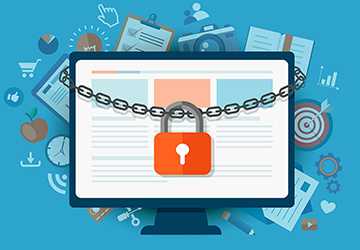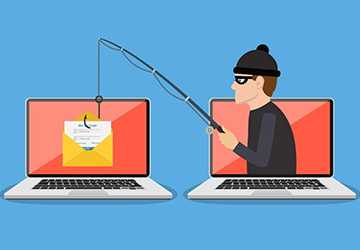Tips to Protect Your Online Privacy
Protecting your online privacy is essential to avoiding hackers, cybercriminals, and snooping. With the rise in cyber threats and data breaches, it is vital to protect your online privacy. This blog post provides practical tips to protect your online privacy from hackers while surfing so you can navigate the digital world safely and with peace of mind.

The Internet offers many benefits and conveniences, but it also poses risks to your personal information and online activities. This guide covers best practices for improving online privacy on social media. Topics covered include understanding privacy risks, practising good security hygiene, identifying and avoiding phishing scams, and using privacy-focused tools and techniques.
Understanding Online Privacy
The standard definition of privacy includes two important aspects: "the state of being alone and not being observed or disturbed by others" is inseparable from our basic need for security. Just as it is a matter of course to protect your home and personal property, the same principles apply to your digital life.
Defining Privacy and Security
Data protection is simply about withdrawing from the enterprise's or the public's view. Data protection focuses on how data is collected, stored, processed, and used, while security refers to maintaining information confidentiality, integrity, and availability. Privacy refers to any right to control your personal information, while security refers to how your personal information is protected.
Importance of Protecting Online Privacy
Protecting online privacy is the right thing to do, and it is each of us's responsibility to make it the norm, not the exception. It plays a vital role in everything from technological advancements to the impact on personal safety. Internet privacy is essential because it gives you control over your identity and personal information. Without this control, anyone with the intent and means can manipulate your identity for their purposes.
As we become more connected, the risk of personal information being leaked online increases. Inadequate user security measures often cause data breaches, thefts, and information leaks. Data protection is one of the most critical consumer protection issues; as technology advances, more information is digitized, and more data collection methods emerge.
Practice good security hygiene
Use Strong Passwords and Passphrases
One of the most important steps to staying safe online is using strong, unique passwords for all your accounts. A strong password should be at least 12 characters long and contain a mix of uppercase and lowercase letters, numbers, and symbols. Avoid using words from dictionaries, personal information, or everyday expressions. Instead, use easy-to-remember passwords, such as "6MonkeysRLooking."
Never share your password with others or send it over unsecured channels. Using the same or similar passwords across multiple accounts increases your vulnerability to credential-stuffing attacks, where hackers try to access your accounts using compromised credentials. To safely manage your various passwords, you should use a reputable password manager that encrypts your credentials and supports multi-factor authentication.
Implement two-factor authentication
Two-factor authentication (2FA) increases security by requiring an extra verification step beyond a simple password; this can be a one-time code from an app, a physical token, or biometric data. Even if your password has been compromised, two-factor authentication (2FA) significantly reduces the risk of unauthorized access.
Although it can be a hassle, using 2FA for critical accounts like bank accounts, email, and social media is highly recommended. Many popular services, including Google, Microsoft, and Facebook, offer 2FA options you can easily enable in your account settings.
Download Security Updates Regularly
To stay safe online, keeping your software up to date is essential. Software updates often contain patches for known vulnerabilities and fix security holes that cybercriminals can exploit. Using outdated software leaves you vulnerable to new threats and potential data breaches.
Detect and Avoid Phishing Scams
Scammers use email or text messages to steal passwords, account numbers, or Social Security numbers. If they receive this information, they can access your email, bank, or other accounts or sell it to scammers.
Detecting phishing attempts
Phishing emails and text messages often make up stories to trick you into clicking a link or opening an attachment. You may receive an unexpected email or message that appears to be from a company you know or trust, claiming there is a problem with your account or payment information. However, these scams may trick you into revealing personal or financial information.

Common signs of phishing attempts include urgent or emotionally appealing language, requests for sensitive information, untrustworthy shortened URLs, and fake email addresses or links. Scammers may claim you need to confirm information, provide invoices you don't recognize, or offer coupons for free items - all fake.
Best practices to avoid phishing
Never provide personal information in response to unsolicited requests, whether over the phone or on the Internet. Emails and websites created by phishers may look legitimate, even if a padlock icon indicates a secure site. Only share information if you have been contacted.
If you suspect a contact may be legitimate, contact the company directly for verification using your independently verified contact information rather than relying on the details provided in the suspicious message. Never share your passwords or sensitive information online unless you initiate contact, as financial institutions will never ask.
Instead of clicking on links in suspicious emails, delete the message without replying or clicking on any attachments. If the message is genuine, search the company's website and contact the company directly. Monitor your accounts and statements regularly for unusual activity, and if you suspect a phishing attack, contact your financial institution immediately.
Improve Your Online Privacy
Use Encrypted Messaging Apps
Encrypted messaging apps like Signal, WhatsApp, and Telegram can be used to improve online privacy. Signal is considered the gold standard for secure messaging because it uses end-to-end encryption (E2EE) by default and is a non-profit organization that ensures no user data is collected.
WhatsApp, owned by Meta, also enables E2EE for all personal conversations except for business accounts. Telegram's E2EE implementation is limited to secret chats. Other chats are encrypted, and Telegram holds the key.
Opt out of Ad Personalization
To avoid targeted ads based on your online activity, opt out of personalized ads on platforms like Google, Facebook, and Amazon. You can do this on Google by going to My Ad Center and adjusting your partner ad settings.
Go to Ads Settings on Facebook and turn off options like "Data from partners about your activity" and "Ads shown outside of Facebook." Visit Amazon's Ad Settings page and opt out of interest-based ads. Also, adjust your Alexa privacy settings on the Alexa privacy page.
Update and Delete Browsing History Regularly
Regularly deleting browsing history, cached data, and cookies can improve online privacy and device performance. Your browsing history shows your searches, visited websites, and cached data, which can be used for targeted ads. Deleting old accounts and cleaning up online information can also improve your privacy by preventing identity theft and limiting data sharing.
Conclusion
That's our top practical tips for protecting your online privacy while surfing. Protecting your online privacy is an ongoing task that requires a multi-layered approach. Strong passwords and two-factor authentication can strengthen your accounts while detecting phishing scams can prevent unauthorized access to sensitive information.
In addition, you can reduce potential data breaches by encrypting messaging apps, turning off personalized ads, and deleting regular browsing history, which limits data sharing. By implementing these comprehensive measures, you can take control of your digital privacy and ensure a safer online experience.
Related Posts
- Emerging Sustainable Tech Innovations Shaping a More Environmentally Friendly Future
- Recent Advances and Applications of Artificial Intelligence
- 5 Solutions for Video Streaming Issues on Various Devices
- 4 Features of AI-Enhanced Video Editing Tools for Creators
- How to choose the exemplary cloud storage service
- 4 Stand Outs in Smart Home Technology In 2021